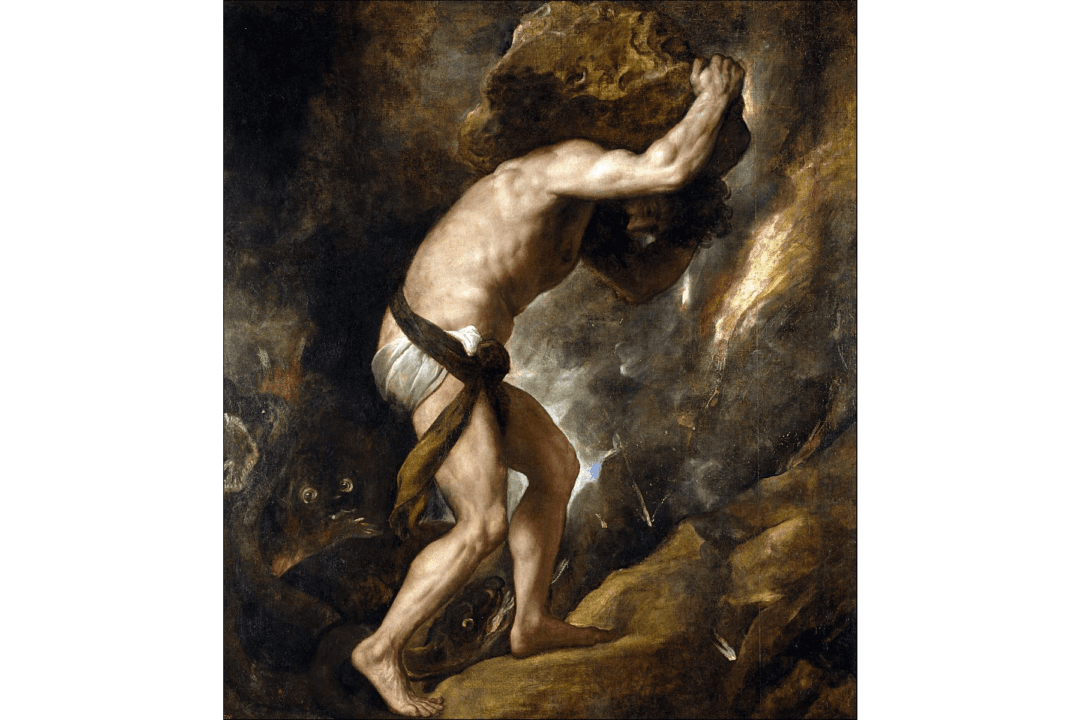One of the great things about the Greek myths is their ability to explain human psychology and reveal more than the merely superficial. Psychologist James Hillman wryly observed: “Mythology is a psychology of antiquity. Psychology is a mythology of modernity.”
Take the case of Sisyphus. He was a mortal, and his name (spelled, Sesephus, according to English critic Robert Graves) means “very wise.” His father was Aeolus, king of Thessaly and keeper of the winds, though, in later traditions, Aeolus became associated with being the god of the winds. Sisyphus was mortal. Nevertheless, as with many Greek heroes (and a villain, in this case), he was brushed with some divine connection.






